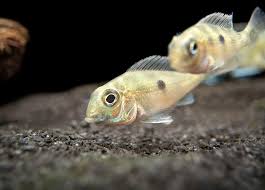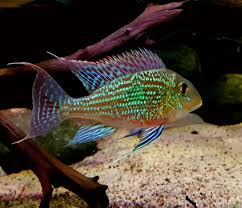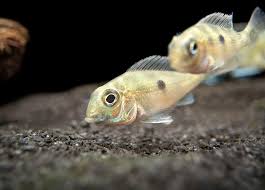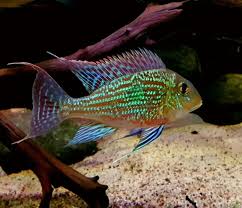Geophagus Sveni
Geophagus Sveni
check_circle Fast Shipping
check_circle Quality Products
check_circle Affordable Price
Reach out to us on ''available to order'' items via WhatsApp or email
Out of stock
Couldn't load pickup availability
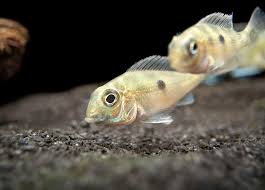
Geophagus Sveni
package_2
Product Description
Product Description
All our fish, shrimp and corals are bagged with fresh oxygen as well as a heat pack in winter.
When ordering livestock please select the box size and add it to your cart for accurate overnight (1-2 days) shipping costs. A small box can take 1-2 bags and a medium box 6 bags. One bag fits max 10 small (1-3cm) fish or max 2 medium (3-5cm) fish or max 1 large (>5cm) fish.
ONE SPECIES PER BAG. Eg: One bag of 10 neon tetra.
🔹 Species: Geophagus sveni
Common Name: Sveni Eartheater
🔸 Description:
-
A moderately sized eartheater cichlid with soft pastel colors, typically silvery-blue with light gold or reddish hues along the body and fins.
-
Long, elegant dorsal and ventral fins.
-
Named after Dr. Sven O. Kullander, a well-known ichthyologist.
🔸 Origin:
Rio Tocantins and Araguaia river basins, Brazil (South America)
🔸 Maximum Size:
15–20 cm (6–8 inches)
🔸 Temperament:
Peaceful; suitable for community tanks with other calm South American species. They are social and prefer to be in groups of 5 or more.
🔸 Aquarium Requirements:
-
Tank Size: 250+ liters (65+ gallons) for a group
-
Substrate: Fine sand (they sift constantly through it with their mouths)
-
Décor: Driftwood, leaf litter, smooth rocks; open swimming space and hiding areas
-
Water Parameters:
-
Temperature: 25–30°C (77–86°F)
-
pH: 6.0–7.5
-
Soft to moderately hard water (dGH: 2–12)
-
🔸 Diet:
-
Omnivorous: Will accept high-quality sinking pellets, flakes, and a variety of frozen or live foods (like bloodworms, brine shrimp, daphnia).
-
Sand-sifting feeders – avoid coarse substrate as it can damage their gill rakers.
🔸 Behavior & Tank Mates:
-
Peaceful and social; best in a group of 5+ to reduce aggression and promote natural behavior.
-
Good tank mates: other peaceful South American cichlids (like Severums), tetras, Corydoras, and Plecos.
-
Avoid aggressive or very small fish.
🔸 Breeding:
-
Biparental substrate spawners.
-
Form monogamous pairs and lay eggs on flat surfaces.
-
Parents care for eggs and fry, often moving them in their mouths for protection (not true mouthbrooders).
